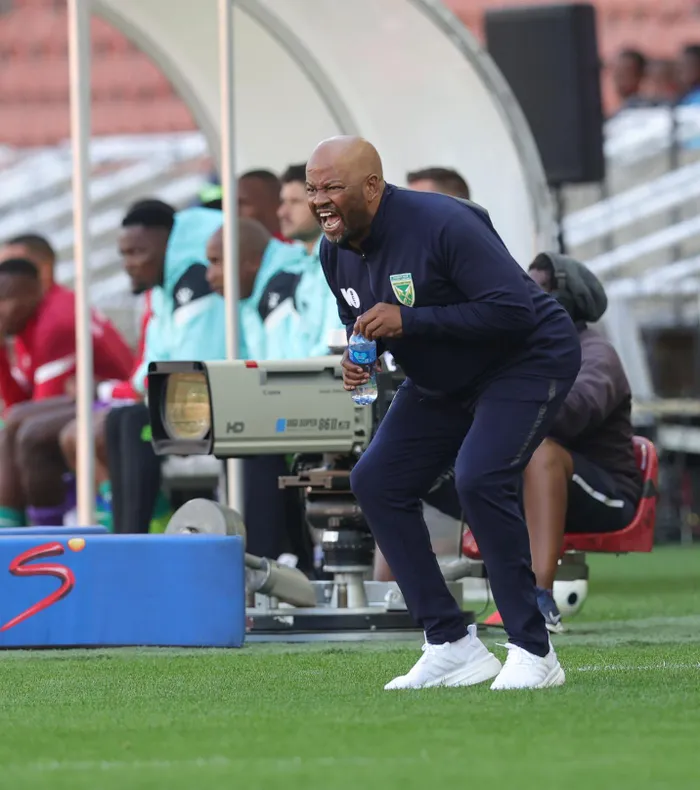
Golden Arrows coach Manqoba Mngqithi believes the turnaround is a direct result of clubs trusting in their local identity rather than importing short-term fixes.
Image: Backpagepix
Golden Arrows coach Manqoba Mngqithi believes the province of KwaZulu-Natal is finally turning a corner in its football identity — moving away from being a “dumping site” for ageing players and embracing a new era powered by homegrown talent.
Speaking with conviction about the rise of KZN clubs this season, Mngqithi credited the recent success of provincial teams to a deliberate focus on developing and trusting young players from the region.
“Our province is on the right track because over the years, our province has been a dumping site,” said the Arrows mentor. “All the old players that are no longer useful somewhere else, they become useful here — but now our province is beginning to produce its own younger, energetic, hungrier and willing players.”
It’s a statement that reflects the current landscape of KwaZulu-Natal football. After 11 matches, three of the four teams from the province sit in the top half of the Betway Premiership.
Arrows, currently ninth, are only six points off a CAF qualification spot, while newly promoted Durban City are an impressive seventh. AmaZulu, in sixth, too, have shown signs of steady progress under their youthful rebuild.
This marks a remarkable turnaround from last season, when KZN’s top-flight outfits were largely in crisis. Arrows, AmaZulu and Richards Bay all flirted with relegation, while Royal AM — now defunct — anchored the bottom of the table.
Mngqithi believes the turnaround is a direct result of clubs trusting in their local identity rather than importing short-term fixes.
“These elements, you’re able to pick them out at Richards Bay, AmaZulu, Durban City — and I think that will help us to build our own things that we think might work for us,” he explained.
The province’s transformation has also been reflected in cup competitions, with two KZN clubs — Richards Bay and Golden Arrows — reaching the semi-finals of the Carling Knockout Cup. For Mngqithi, that’s proof of a growing belief and competitive edge among the region’s teams.
“When I look at how all of these teams are playing, it gives me hope that we might soon have players in the national team,” he said.
“Because another reason we don’t have much representation in the national team is because we had players that were past their prime. If we continue to groom our own youngsters, we will have representation.”
The message is clear — the foundations for a stronger football culture in KwaZulu-Natal have been laid, and the success of its clubs is no longer coincidental. With local coaches emphasising player development and clubs investing in youth, the province could soon become a vital contributor to both the domestic league and the national team.
For Mngqithi, it’s not just a matter of form — it’s about legacy.
“If we continue to produce our own, we will eventually build something that truly belongs to us,” he concluded.
KwaZulu-Natal, once the forgotten corner of South African football, is now showing the country what can happen when you trust your own.
Related Topics: